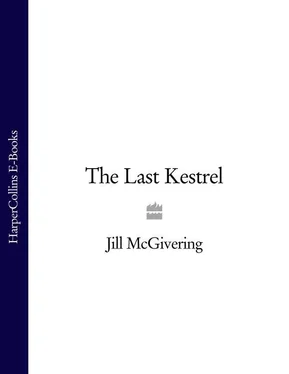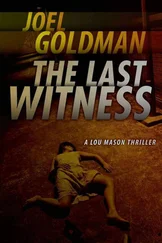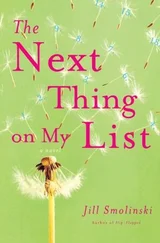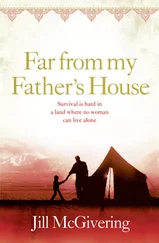All night she stroked his forehead, fanned flies from his wound and murmured to him. Once, he woke abruptly, as if from a nightmare, and stared at her. His eyes were blank. His face was slippery with fresh sweat. She patted him, soothed him back to sleep.
When he woke again at first light, his fever had lifted. He was weak but he knew her and knew the place. She fed him hot tea and fragments of soft food. A hint of colour was returning to his lips.
A deep rumbling drifted in from the fields. She went out to the yard to look. A fleet of lumbering, metallic vehicles was pitching down the desert slope, making its way from the far ridge to the valley and the river below. The early morning light bounced off the sharp angles. She put her hand to her face. They were closer than she’d imagined possible. She heard a droning and turned her eyes to the sky. Aircraft were twisting there, turning sideways, one wing-tip pointing to the ground, the other to heaven, then righting themselves again with a rush. They dipped and screamed overhead. The foreigners, she thought. It had begun.
She ran back inside and forced Aref to sit, propped up against the wall.
‘Soldiers,’ she said. ‘You must go.’
He stared, his eyes dull. ‘Where?’
‘Anywhere. Go.’ She pulled his tattered, stained shirt back over his head, pushed his arms through the sleeves and watched him stuff his few possessions into its folds. ‘If these foreigners find you…’
He seemed ready to sink back onto the cot.
‘Hide in ditches, in fields.’ She tugged him to his feet. ‘Use the blessing of the land.’
From deep in the valley, the thick choke of an explosion. Hasina struggled to pull him out into the yard. When she let go of him, his legs buckled. He sank down the wall of the house to the ground. In the valley, black smoke was rising. An aeroplane dived, shrieking, from the sky, and swooped low over the hillside. She fell to the ground, covering her head with her shawl. A moment later, the earth shook. The blast deafened her.
She sat up. Aref was staring at her. Miserable and afraid.
Hasina looked at the pouch. ‘Those bombs you have,’ she said, ‘give them to me.’
His eyes widened. ‘They are not—’ he began.
She raised her hand as if to slap him. ‘Do as you’re told,’ she said.
Aref ripped open the stitching and eased out two metal objects. They were grey-green, rounded with straight metal levers.
‘You twist and pull this,’ he said, ‘then throw them. They go off like bombs.’
Hasina looked at the smallness of them in his hand. They were dull, unappetizing pieces of fruit. One was scored by a line of rust.
Another jet shot over the valley, cutting through the air. She clamped her hands to her ears. A moment later the hillside shivered. The yard trembled under her feet. She took the bombs from him. The metal was chilled and dirty.
‘Go,’ she said. ‘May Allah in His mercy protect you.’
He pulled himself to his feet, turned without a word and swayed across the yard, lurching at last into the corn.
The dense smoke of the foreign bombs blocked out the creeping vehicles, then, as it dispersed, they reappeared, always closer. Hasina pushed her way through the cornfield to the edge of the poppy below. The valley opened out before her. The foreigners’ vehicles drew a defensive circle alongside the river. Figures of men, in light brown clothes, were darting along the bank. Digging machines were throwing up clouds of dirt. Between the crash of falling bombs, she could hear the steady chug of engines.
What kind of men were these Westerners? She wrapped her arms round her chest and hugged her thin shoulders. May God protect us. She looked at the metal fruit in her hands. She must give Aref time to flee.
The soldiers made rapid progress. They slotted metal panels into a bridge and nosed them into place over the river with their machines. They worked without contest, their aeroplanes screaming overhead, deforming the face of the hillside with fire and pockmarks.
When the first men ran over the bridge, her stomach heaved. Her palms were stinging with sweat. She turned and fled back to the house. She dashed round the yard, picking up her old cooking pot and cooking knife and the large water pot. She took them with her into the house.
She pushed away the large stone, which kept the door to the house permanently open in summer and fastened the door shut from the inside. Once it closed, the house became black. She stood quietly in the cool darkness, listening to the bang of blood in her ears. The house smelt rich, of earth and family. My home, she thought. This is where Aref was made and born. She wondered how far from the house he had crawled and what hiding place he’d found.
Her eyes were starting to adjust to the thin light. It was seeping in from the back window, and from the near one, which gave onto the valley. She pulled a stool under the window and sat, looking out over the corn. Halfway up the hillside, there were shots. She swallowed, struggling to compose herself. Behind her a cry, quickly stifled.
‘Who’s that?’ She challenged the darkness. ‘Tell me.’
A scramble, a sob and a small figure crawled out from under the cot, catapulted across the room and banged into her knees. It pushed its head at her stomach, almost knocking the grenades off her lap.
‘You,’ she said. ‘What…?’
Yousaf, Palwasha’s boy, stared up into her face with bulging eyes, wet with tears. ‘I’m scared,’ he said. He started to sob. His nose was running with snot. ‘Where’s Mummy?’ His breath came in gulps. ‘I want Mummy.’
Hasina stared. Behind him, the dark shapes of the two girls rose from under the cot.
‘What are you doing here?’ Hasina was beside herself. ‘Go. Get away. Run.’
‘Don’t make us, Auntie.’ Sima’s voice was already breaking into tears. ‘Please.’
Nadira pushed past Sima and buried her face against Hasina’s thigh. Hasina ran a hand abstractedly over the child’s tousled hair. Outside, another shot. The soldiers sounded close to the outer edge of their land. She gave the children a shove.
‘Quick,’ she said. ‘Crouch down. Quiet.’
They ran together, arms churning the air, and crouched in a line against the wall. Hasina turned back to the window, light-headed with fear. She focused her eyes on the veil of corn, feeling the foreign soldiers creep closer and fingering in her wet hands the two small bombs, the only weapons she had to keep them at bay.
The darkness was still dense when Ellen followed the young soldier to the convoy, led by a low bouncing shaft of torchlight. She leaned against the steel of the nearest military vehicle, her flak jacket crushing her shoulders, and watched the black shapes of the men move around her in silence as they checked kit and loaded up. The air was cool and dry against her skin.
Major Mack sought her out as the men moved into position and pointed her to a Snatch in the middle of the convoy. She sat squashed up against the heavy back door. It was a tin can of a vehicle, its interior stripped bare. The Snatch shook itself into life and started to pitch and roll out of the camp gates and across open desert. She braced her legs and gripped the roof strap. Her helmet cracked against the metal struts behind her every time they banged into a hollow. She rode the impact, steadied her nerves and said nothing.
She’d never liked Snatches. The rough ride didn’t bother her but they were poor protection, nicknamed ‘metal coffins’ for a reason. If they hit anything now, an IED or a mine, the flying shrapnel would slice them to mince. What was that expression the lads in Iraq used? Everyone gets a bit.
They were wedged tightly into this one, thigh against thigh, knee scraping knee. She’d pushed the team over quota; five, instead of four in the back, sharing the same stale air. Packs and boxes were piled round their feet. The soldiers sat in silence, their faces tight with concentration. The young soldier opposite her, Frank, was looking everywhere to avoid catching her eye. He was barely twenty but thuggish, with the heavy forehead and thickset nose of a fighter. She wondered where in the UK he came from and how much military action he’d seen. Her eyes fell to the weapon, an SA-80, across his lap.
Читать дальше












